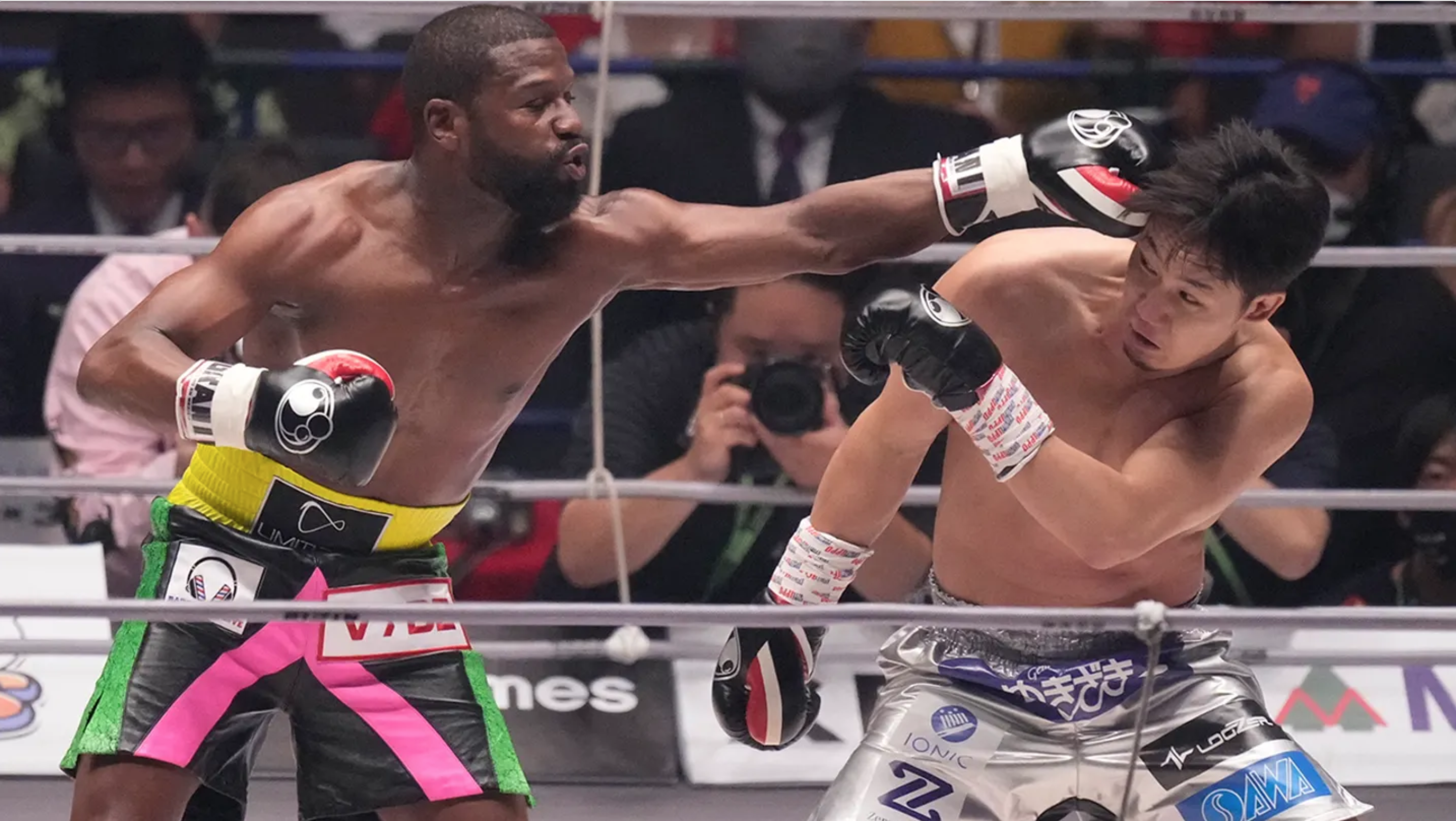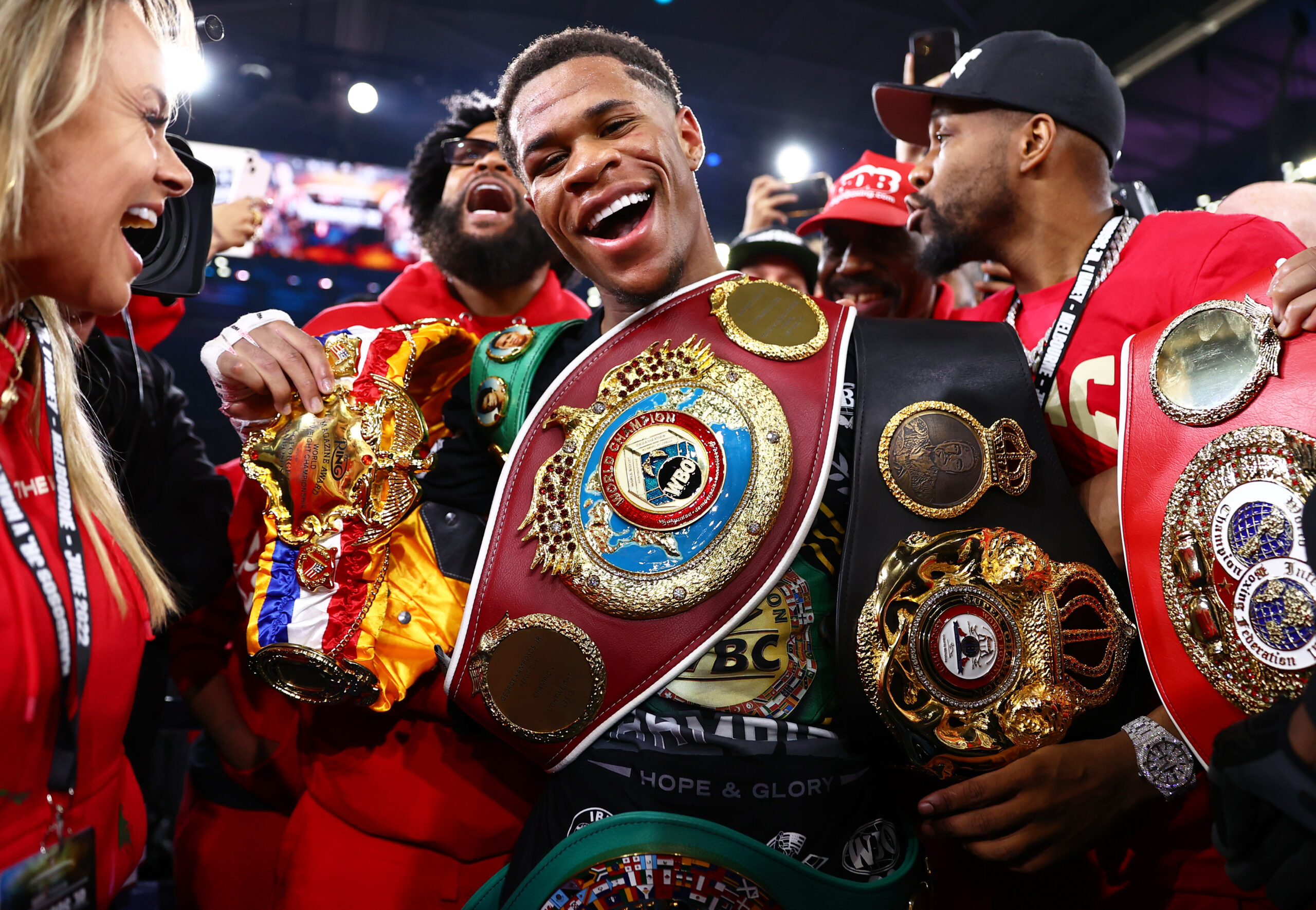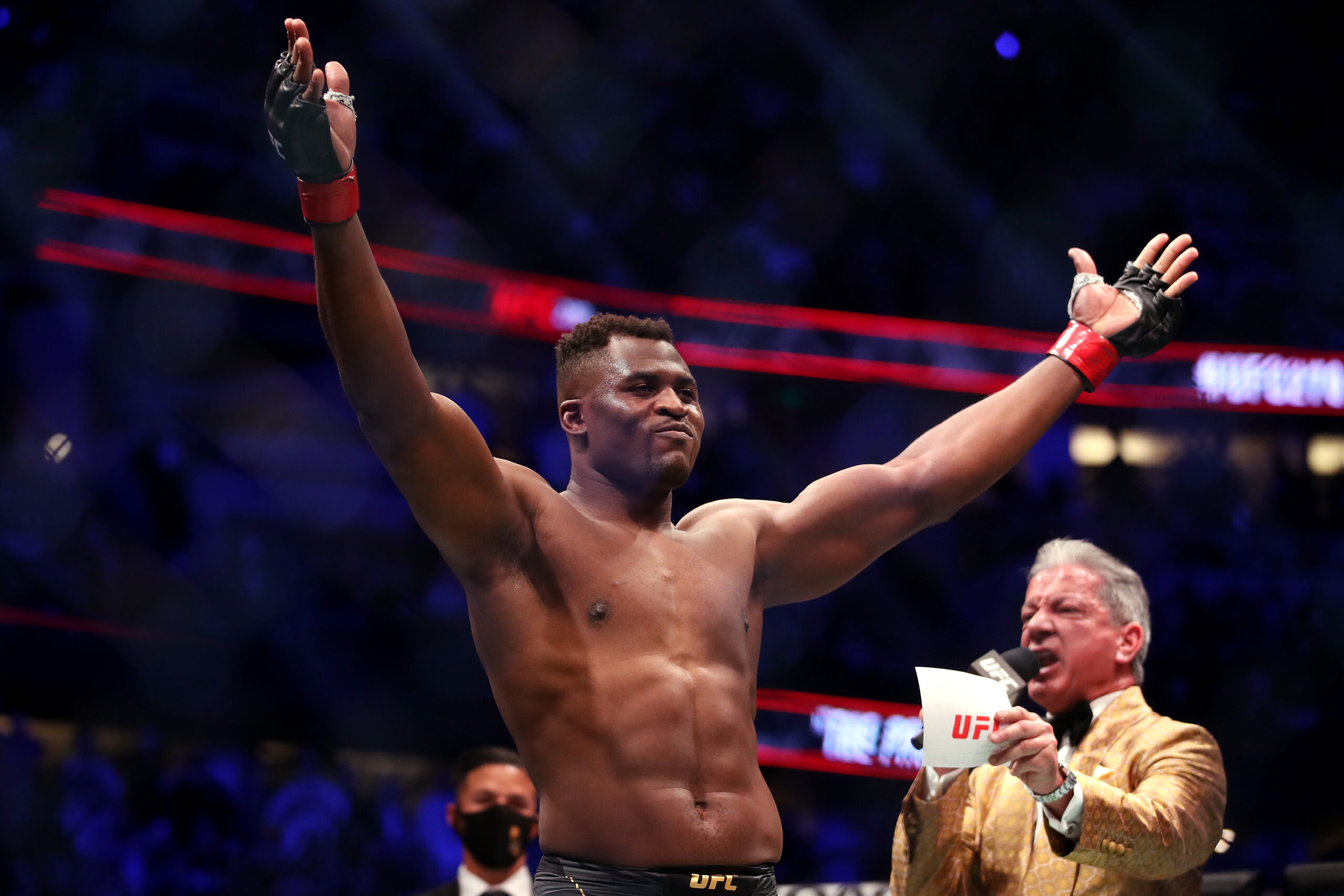What’s the easiest way to stack a W in boxing? A knockout, right? Ok, so “easiest” might not be always be the best way to describe what it takes to earn a KO, but it’s certainly the most definitive way to end a fight and eliminate any need for the judges.
But as the boxing landscape increasingly turns towards corporate nature, it’s quickly becoming the only way to ensure victory in a fight.
The problem with an economic structure that separates haves from have-nots is that it means your advantage often comes at someone else’s disadvantage, exacerbated now by the fact that many haves don’t see just how advantaged they are. There isn’t necessarily anything wrong with this model, though. It creates an environment in which working hard can earn more money, so the industrious amongst us can get further ahead than the so-called lazy few.
At least, it’s supposed to be that way, in theory. Unfortunately, there’s such a wide gap between the two groups that politics and policies are too polarized and rarely apply to a population as divided as America has become. Power and wealth are so concentrated at the top, that very few people have the outcome to determine winners and losers.
It’s supposed to be like that in sports, too. But as Manny Pacquiao takes the ring against Brandon Rios, we’ll be reminded that no matter how much work these guys put into training and preparing, one of them is going home with an L, whether they earned it or not.
See, boxing now mirrors the synergistic way of corporate America. The two rival promotional companies in boxing, Top Rank and Golden Boy, tried to co-exist for years, but negotiations, tactics, out-bidding and scheduling conflicts meant the two decided it would simply be better off if they just didn’t do business. When Showtime hired a former lawyer for Golden Boy, the unspoken agreement was solidified : Golden Boy would match its own fighters against each other on Showtime, while Top Rank and a few other smaller promoters worked things out with the bigger budget at HBO. That way, Golden Boy and Top Rank keep all the money for any given fight, since they would be the promoters for both fighters, and the networks get regularly scheduled fights with less risk of someone pulling out due to contract disputes. The down side? Fights like Mayweather-Pacquiao and Canelo-Chavez Jr. have not and will not have any chance of getting made. However, fights almost as good, like Pacquiao-Rios, get made in a heartbeat, and all have the potential for a skewed decision.
Rios—a tough-as-nails brute force who enjoys taking punishment to dish out his own—is a bold choice considering the last time Pac Man was seen in a ring, he was out cold after Juan Manuel Marquez delivered a right hand with the force of all the frustration from their previous three fights. The Pacquiao-Marquez saga had many twists and turns, inside and outside the ring. It took a long time to put together a third fight, despite widespread desire for a rematch from fans enticed by the incredible bravado and skill on display in the first two bouts. As is true for almost any boxing negotiation, the issues came down to money. The promoters typically imply that one fighter is asking for too much, but often times it’s more about who will collect that money at the end of the day. For years, Marquez was signed to Golden Boy Promotions, while Pacquiao was with Top Rank. No matter the interest from the fans, the fight didn’t come close to getting made. Magically, Pacquiao-Marquez III happened just a few short months after Marquez became a promotional free agent and went straight to Top Rank. He knew it would be the only chance he’d get at vengeance, and although he finally got it in the sixth round of their fourth fight, the fights surrounding it were filled with questions.
Given the magnitude of the knockout, it’s easy to forget that Pacquiao is actually coming back from consecutive losses. Before succumbing to Marquez, Pacquiao was robbed by judges in Las Vegas against Timothy Bradley—including by one of TSL’s favorite judges, the now-retired CJ Ross. Very few people scored Bradley winning the fight outside of the two judges who mattered, as boos showered the ring during the announcement.
The same thing happened during Pacquiao-Marquez III, when Pacquiao was handed a majority decision. Fans were so outraged, beer cans and trash landed in the ring. Said Marquez in the build-up to Pacquiao-Marquez IV, “It seems that Manny has only one opponent every time we fight — me — while I have four: Manny and the three judges.”
Marquez made sure they didn’t matter with his cold right-hand, but his glory was short lived. Marquez turned down a fifth fight with Pacquiao to dish it out with Bradley, now the owner of Pacquiao’s WBO belt. With a win, Marquez would have become the first Mexican fighter to ever win belts in five different weight classes. Already heralded as one of the best Mexicans to ever lace ‘em up, this mark would elevate his legacy to legendary status.
But Marquez tempted fate one too many times, perhaps not realizing his name only had a few years of money left, while Bradley was on the come-up. Marquez and his team were furious after another close split-decision loss. "Not only is [Bradley] a good fighter, he's lucky," Marquez’s Hall of Fame trainer Nacho Beristáin said after the fight, "He's the only undefeated fighter with two losses.”
Whether Bradley-Marquez was a robbery like Julio Cesar Chavez’s recent heist against Brian Vera—or, for that matter, Brandon Rios’ gift from the judges against Richard Abril in April, 2012, a score so widely opposed Abril was allowed to keep his belt anyway—is up for debate, but the potential for a fix seems to be much higher when the same promoters roll out the same fighters on the same networks in the same cities. Even if it’s not organized from the top down, it’s in everyone’s best financial interest to keep the cash cow in the fight alive for everyone to keep feeding on. The fewer promotional companies involved, the easier it is to spread that message—if it needs to be said at all.
The relationship Golden Boy has with Showtime is a lot like the Wal-Mart model of selling products: as one hand controls the input, the other controls the output. Wally World has its large warehouses worldwide and sells all kinds of products that are mostly owned by just 10 large corporations . Though they’re happy to take business from everyone, Wal-Mart’s own products are usually the cheapest option. Unlike the corporations whose products they sell, which amassed power by buying other brands and companies to make it easier to market, distribute and reduce overhead (ie: employees), they own the stores, too, and have the golden ticket by controlling the input and the output.
This process limits options for the people they are supposed to support. Boxers are free to sign with any promoters they choose, but only a certain few are tight with networks. Consumers are free to shop anywhere they choose, but only Wal-Mart can afford to sell its competitors items for cheaper than anyone else.
This economic power gives Wal-Mart the leverage to force brands, and, specifically, artists to bend to its image—no matter the reason. They’ve refused to sell several albums in their stores for content they didn’t approve of, from Nirvana to Bizzy Bone. You won’t see every issue of Rolling Stone or Vibe in their stores either. If Wal-Mart isn’t feelin’ certain content, they won’t put it on their shelves, so companies offer them a peek of what’s coming. “If you don’t let them know in advance, they will delist the title and never carry it again,” said Dana Sacher, former circulation director for Vibe, in Naomi Klein’s No Logo. “This way, they don’t carry one issue, but they might carry the next one.”
Like boxing, this creates the illusion of choice: You get to pick what you want if it also happens to be what the company wants. Yeah, Pacquaio-Mayweather would be nice, but how about Mayweather-Mosley instead? The boxing fan also gets left in the lurch, forced to choose between paying to see Golden Boy fighters on Showtime or others on HBO.
It’s corporate control at its finest, flexing their financial muscles while forcing others to comply with their standards. With a huge market share, companies, artists and authors are forced to decide whether to stand for what they believe in or change it to maximize profit.
Tim Bradley felt the corporate pressure in his last fight. Top Rank sided with Marquez on a drug testing issue, all but forcing Bradley to comply.
"Top Rank is … spending a massive amount of money promoting this fight,” said Bradley. “HBO is promoting this fight. Everyone has a hand in this fight. At the last minute, I decide because he doesn't agree to the drug testing, I'll piss off my promoter, they'll probably not extend my contract. I'll piss off HBO, so they'll say we don't have another date for Tim Bradley this year. Then there's no business for me."
Outsourcing has been great for corporate America too, with soaring profits on the back of tax havens and cheap foreign labor, while taking jobs away from Americans. It’s also allowed companies to skate on safety issues. On Monday, Wal-Mart stated that 10 factories in Bangladesh failed safety inspections out of the just 75 tested thus far (they use about 200 in the area). In April, over 1,100 people died in one of those buildings when it collapsed on the workers.
Workers don’t die putting on boxing matches (only soccer matches), but fighters seem to be chosen for big fights out of a hat, and the winner based on economic potential instead of effort and hard work.
That’s exactly what seemed to go down when Canelo lost to Mayweather. Despite one-sided ass-whooping, Canelo still earned a draw on one of the scorecards. This was hardly a surprise, though. Canelo is the prodigy of the Golden Boy stable, and a win or close fight against Mayweather would have proven his worth to the general public. Instead, the public witnessed an attempted robbery, one of the few unsuccessful thefts in recent boxing history marred with asterisks and question marks—many in the last decade alone.
Whether the cozy promotional-TV relationship is intentionally fixing fights or whether the unchecked nature of such arrangements simply increases the likelihood for corruption isn’t clear, but boxing, just like corporate America, has a major problem. Boxing, which has no central commission—hence the numerous Alphabet Belt-holders in every weight class—and corporations hurt the people with whom they supply at the cost of the people putting the product together. Both entities represent the negative aspects of centralizing power and wealth. Though our system of government has built-in checks and balances, there are few with the finances able to keep the extremely rich in check with a laizzes-faire approach to the economy. The concentrated power as a result of the increasingly wide wealth gap means winners can be easily predetermined.
Both entities are living in a dream world if they believe consumers of the internet age won’t tire of this kind of price fixing or match fixing, while profiting enormously on the backs of people they are taking advantage of. But when Pacquiao takes the ring against Rios, fans will instead be living the reality of that dream world. They’ll have no idea who is going to win, but for all the wrong reasons.



